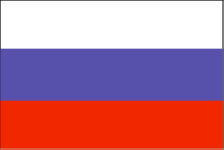 Not being an expert in Russian law, but this brief article (pdf) did catch my attention. Two new laws, About Personal Data 2006 and (160-03) and About Information, Information Technologies and Protection of Information 2006 (No. 149-03) were signed by the President Vladimir Putin on July 27, 2006. This would mean that the law on personal data will take effect in February 2007, bringing Russia into line with the other European countries that have enacted data protection laws.
Not being an expert in Russian law, but this brief article (pdf) did catch my attention. Two new laws, About Personal Data 2006 and (160-03) and About Information, Information Technologies and Protection of Information 2006 (No. 149-03) were signed by the President Vladimir Putin on July 27, 2006. This would mean that the law on personal data will take effect in February 2007, bringing Russia into line with the other European countries that have enacted data protection laws.The laws are meant to give effect to the European Convention for the Protection of Individuals with regard to Automatic Processing of Personal Data, ratified by Russia last year....
About Personal Data (The Personal Data Act) regulates the processing of personal data by Russia’s federal and regional governments, municipal authorities, legal entities and natural persons. It applies to both automatically and manually processed data. The aim is to protect an individual’s rights and freedoms, in particular the right to privacy, and private and family secrets...
The data protection laws are certainly beginning to make its headway. May it long continue...


